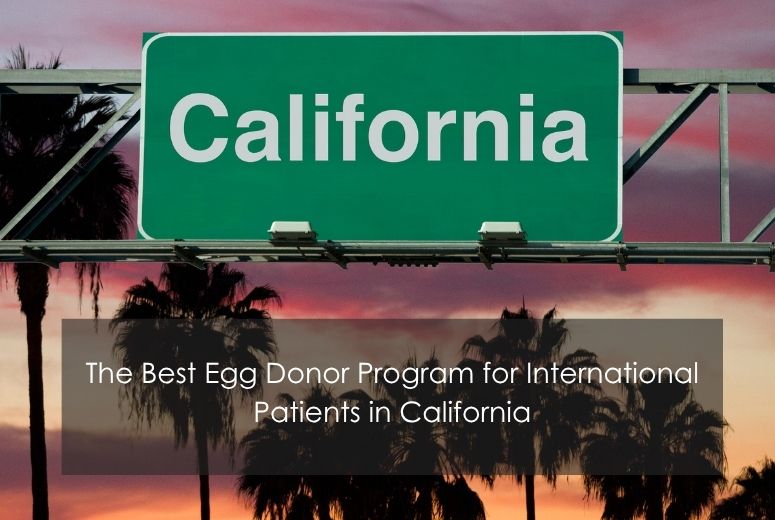Italy recently passed a law criminalizing surrogacy conducted abroad, sending shockwaves through the international fertility community. For families who had considered surrogacy as a viable pathway to parenthood, this law represents a new hurdle in an already complex journey. The decision, controversial and debated, affects both intended parents in Italy and fertility clinics worldwide, including specialized clinics like EggDonorsSanDiego.com, where Dr. Minoos Hosseinzadeh offers personalized fertility solutions.
Let’s explore the implications of Italy’s surrogacy ban, why it matters globally, and how clinics like EggDonorsSanDiego.com can help guide those affected by these legal changes.
Surrogacy is a fertility arrangement where a woman agrees to carry and give birth to a child for another person or couple, often because they are unable to conceive or carry a pregnancy to term themselves. There are two primary types of surrogacy: traditional and gestational. Gestational surrogacy, the more common method, involves implanting an embryo created via IVF using the intended parents’ or donors’ gametes into the surrogate. This method has become increasingly popular globally, with many intended parents seeking surrogates in countries where surrogacy laws are more permissive.
How Does Italy’s New Law Affect Surrogacy?
The recent Italian law criminalizing surrogacy abroad means that Italian citizens who pursue surrogacy in other countries can now face criminal charges upon returning home. This landmark legislation extends the reach of Italian law beyond its borders, making it one of the most restrictive surrogacy frameworks in the European Union.
According to Dr. Minoos Hosseinzadeh, founder and medical director of EggDonorsSanDiego.com, “This decision will significantly impact Italian families seeking surrogacy options. It limits their reproductive choices, and many may now look to alternative fertility treatments such as egg donation.”
Why Has Italy Criminalized Surrogacy Abroad?
The Italian government cites moral and ethical concerns as the basis for criminalizing surrogacy. Critics argue that surrogacy exploits vulnerable women, particularly in countries with weaker regulations. By banning surrogacy abroad, Italy aims to curtail what some lawmakers see as “reproductive tourism,” where intended parents seek surrogates in countries with less restrictive laws.
However, this approach has been met with opposition from those who believe that surrogacy provides a necessary solution for families who cannot conceive naturally. Many view the ban as a step backward for reproductive rights.
Who Is Affected?
This law primarily impacts Italian citizens, but its repercussions may ripple through the global fertility landscape. Italian citizens who had been planning or already engaged in surrogacy abroad are now in a precarious position. Fertility clinics worldwide, particularly those specializing in international patients, will likely see a shift in clientele as intended parents reassess their options.
Symptoms of a Shifting Fertility Landscape
The international fertility landscape has been evolving for years, with legal frameworks shifting in response to ethical debates. Countries that previously embraced surrogacy are reconsidering their laws, and intended parents are forced to navigate an increasingly complex web of regulations.
For intended parents in Italy, this means the risk of legal penalties for pursuing surrogacy abroad. But it also brings attention to alternative fertility options, such as egg donation or adoption, which are not as heavily regulated in many countries.
Causes and Risk Factors for Seeking Surrogacy Abroad
Many couples pursue surrogacy abroad due to restrictive domestic laws, infertility issues, or the high cost of surrogacy in their home country. However, seeking surrogacy abroad carries significant risks, particularly in countries with less stringent legal protections for both intended parents and surrogates.
Dr. Hosseinzadeh emphasizes, “It’s essential for intended parents to consider the legal, financial, and emotional implications before embarking on a surrogacy journey abroad. Clinics like ours focus on providing ethical and legally sound fertility treatments.”
Complications of Surrogacy Bans
For those who had planned to pursue surrogacy in countries like the United States or Canada, where surrogacy laws are more permissive, Italy’s ban may feel like a severe setback. The risk of criminal prosecution upon returning home creates an environment of fear and uncertainty for families who simply want to grow.
Additionally, criminalizing surrogacy abroad may drive some intended parents to seek surrogates in countries with fewer regulations, increasing the likelihood of exploitation and unsafe medical practices.
Prevention and Alternatives to Surrogacy
For those affected by Italy’s surrogacy ban, exploring alternative fertility options may be necessary. Egg donation is one such alternative, providing a solution for individuals or couples who face infertility but do not want to pursue surrogacy. At EggDonorsSanDiego.com, we specialize in helping families navigate these complex decisions with compassion and expertise.
Dr. Hosseinzadeh notes, “Egg donation is a safe and ethical alternative for intended parents affected by these legal changes. Our clinic offers a one-on-one approach to ensure families feel supported throughout the entire process.”
Types of Treatment Available
In addition to egg donation, fertility treatments such as IVF, intrauterine insemination (IUI), and embryo adoption remain available for families affected by Italy’s surrogacy ban. These treatments offer a variety of options for intended parents to achieve their dream of parenthood without the legal risks associated with surrogacy.
EggDonorsSanDiego.com is uniquely positioned to offer tailored fertility solutions that prioritize ethical standards and patient care. Dr. Hosseinzadeh’s hands-on approach ensures that every patient receives the personal attention needed to make informed decisions about their reproductive health.
FAQ Section
Q: What alternatives are available for Italian intended parents affected by the surrogacy ban?
A: Alternatives such as egg donation, IVF, and adoption are viable options. Clinics like EggDonorsSanDiego.com offer personalized fertility treatments to help families navigate their options.
Q: How does egg donation work?
A: Egg donation involves using a donor’s eggs to achieve pregnancy through IVF. The donor’s eggs are fertilized with sperm, and the resulting embryo is implanted into the intended mother’s uterus or a surrogate’s uterus.
Q: What legal risks do Italian intended parents face if they pursue surrogacy abroad?
A: Italian citizens who engage in surrogacy abroad can now face criminal charges when they return home, including fines and potential imprisonment.
Q: Can international clinics like EggDonorsSanDiego.com assist Italian families?
A: Yes, EggDonorsSanDiego.com provides alternative fertility solutions like egg donation for international families, ensuring ethical and legally compliant treatment plans.
As Italy’s ban on surrogacy abroad takes effect, intended parents must reassess their reproductive options. Alternative treatments like egg donation offer a safe, legal, and ethical path to parenthood for those affected by these changes. At EggDonorsSanDiego.com, Dr. Minoos Hosseinzadeh and her team are dedicated to providing personalized fertility care, helping families explore every available option on their journey to parenthood.









